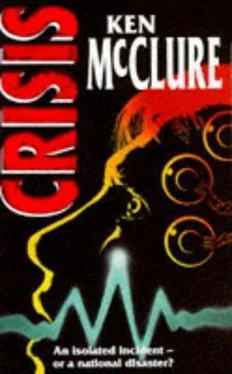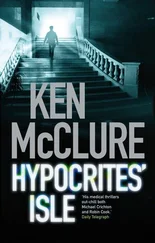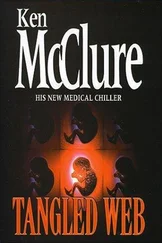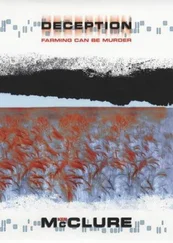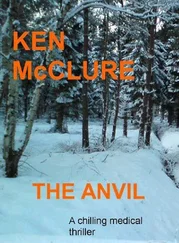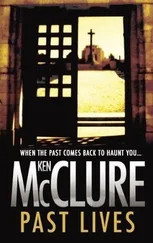Ken McClure - Crisis
Здесь есть возможность читать онлайн «Ken McClure - Crisis» весь текст электронной книги совершенно бесплатно (целиком полную версию без сокращений). В некоторых случаях можно слушать аудио, скачать через торрент в формате fb2 и присутствует краткое содержание. Жанр: Триллер, на английском языке. Описание произведения, (предисловие) а так же отзывы посетителей доступны на портале библиотеки ЛибКат.
- Название:Crisis
- Автор:
- Жанр:
- Год:неизвестен
- ISBN:нет данных
- Рейтинг книги:3 / 5. Голосов: 1
-
Избранное:Добавить в избранное
- Отзывы:
-
Ваша оценка:
- 60
- 1
- 2
- 3
- 4
- 5
Crisis: краткое содержание, описание и аннотация
Предлагаем к чтению аннотацию, описание, краткое содержание или предисловие (зависит от того, что написал сам автор книги «Crisis»). Если вы не нашли необходимую информацию о книге — напишите в комментариях, мы постараемся отыскать её.
Crisis — читать онлайн бесплатно полную книгу (весь текст) целиком
Ниже представлен текст книги, разбитый по страницам. Система сохранения места последней прочитанной страницы, позволяет с удобством читать онлайн бесплатно книгу «Crisis», без необходимости каждый раз заново искать на чём Вы остановились. Поставьте закладку, и сможете в любой момент перейти на страницу, на которой закончили чтение.
Интервал:
Закладка:
Bannerman opened it and pulled out a pair of gloves. ‘Goretex gloves!’ he exclaimed. ‘I’ll be the best dressed climber on the mountain.’
‘In January, you’ll be the only climber on the mountain,’ retorted Stella.
Thank you, that was a kind thought,’ said Bannerman.
‘I think we’d better go if we’ve to get you on that train,’ said Stella.
They arrived at the station with ten minutes to spare. Bannerman insisted that they say their goodbyes there and then, knowing that neither of them liked hanging around draughty platforms in order to wave at a moving train. He watched Stella’s back until she turned round at the exit, then he waved and walked through the barrier to board the train.
Bannerman woke at six. The train was crossing a particularly intricate piece of track, and the change from regular sound patterns to a series of irregular clacks and jolts had disturbed him. He opened the blind and looked out at a misty, grey morning with dampness clinging to the trees and fences bordering the track. Maybe a holiday in the sun wouldn’t have been such a bad idea after all, he thought, but then he stamped on the heresy and got back into his bunk. He propped himself up so that he could catch occasional glimpses of the countryside. If the train was on time they must be soon approaching Berwick and the Scottish border.
As he got out on to the platform at Waverley Station in Edinburgh, Bannerman considered his options. The medical school were expecting him any time after nine so he still had some time to kill. He was hungry, but not hungry enough to eat in the station buffet. He walked up the hill, out of the station and up to Princes Street, where he admired the sight of Edinburgh Castle looming out of the morning mist before opting for breakfast at a large hotel. His third cup of coffee took him up to a time when he could hail a taxi and ask to be taken to the university.
‘Nice to meet you,’ said the white-haired man who stood up and introduced himself as George Stoddart, when Bannerman was shown into his office.
Stoddart was a small man in his sixties with silver hair and a neatly clipped moustache. He was wearing a dark suit with a Bengal striped shirt and a university tie. The shirt seemed a bit too tight around his middle, thought Bannerman, as he took the outstretched hand and said, ‘How do you do Professor.’ He wondered if the slight coldness he detected in the man’s manner was real or imagined. If it was real it was not entirely unexpected, after all, he was an outsider being foisted on the department by the MRC. There had been no opposition from Munro because his people were scientists not medics, but Stoddart’s department was different. It was medical and it was not inconceivable that he might be seen as an interfering interloper from the south.
‘We’ve arranged an apartment for you in the old town,’ said Stoddart. ‘Would you like to be taken there right away or would you rather settle in here first?’
‘Here I think,’ said Bannerman.
‘Very well,’ said Stoddart. ‘I’ll have someone show you to your lab and then we can talk.’ He picked up the phone and requested that ‘Dr Napier’ come up.
Bannerman was introduced to a woman in her mid-thirties. She was pleasant looking but her appearance was tempered by what he regarded as middle-class notions of respectability. Her clothes, hairstyle, shoes, all deserved the adjective, ‘sensible’, and when she spoke she did so with just the genteel accent he expected her to have. The soul of discretion and reliability, he thought; there’s a woman like her in every university department. He noticed that she was wearing an engagement ring. That didn’t quite fit with his appraisal of her as a ‘bride of the university’.
‘Morag Napier,’ said the woman, holding out her hand with a smile.
‘Ian Bannerman.’
Bannerman followed Morag Napier along a corridor and down some stairs to where she opened a half-glazed door and ushered him inside. ‘I think you’ll find everything you need here,’ she said. ‘If not, I’m only next door. You only have to ask.’
Thanks,’ said Bannerman, looking about him with a heavy heart. The building was old. It was part of the original medical school at the university and consequently high ceilings and tiling were much in evidence. The cold, grey light coming in from a north facing window did nothing to lighten the atmosphere.
A modern microscope stood on a turn-of-the-century lab bench, and a calendar from a laboratory supply company decorated the wall above it. There was a blackboard on one of the other walls with a duster and a cardboard box containing an assortment of coloured, mainly broken, chalk sticks.
There were some dusty pathological specimen jars arranged along a wooden shelf with labels that were peeling and practically indecipherable with age. Bannerman looked closely and saw that one patient’s liver had achieved immortality, courtesy of formaldehyde fixative. Diamonds ain’t the only things that are forever my son, he thought.
‘I hope everything’s all right,’ said Morag.
‘Everything’s fine,’ replied Bannerman, with his back to her.
‘I’ll leave you for a bit, then, when you’re ready, I’ll take you back to Professor Stoddart,’ said Morag.
‘No need,’ said Bannerman, turning to face her. ‘I can remember the way.’
‘If you’re sure?’
Tm sure.’
There was an old oak desk beside the blackboard. Bannerman sat down at it and opened the drawers to see if they had been emptied. In the main they had, although half an eraser, two pencils and a broken plastic ruler lingered on. He opened his briefcase and transferred some of his own things to them. He saw this as an act of self-psychology — a conscious effort to persuade himself that this was where he was going to be working for the time being. He was considering how oppressive the room was, when a slight knock came at the door. It was Morag Napier.
‘I forgot to give you these,’ she said. In her hand she held a series of brown cardboard files. These are the notes Lawrence and I made on the brain disease patients.’
‘Lawrence?’ asked Bannerman.
‘Sorry. Dr Gill, the man I work with.’
‘I hear he’s not around at the moment,’ said Bannerman, taking the files and resting them on his knee.
‘No, we’re very worried about him.’
‘No word at all?’
‘Nothing.’
‘Have the police been informed?’
Morag Napier looked uneasy at the question. ‘No,’ she replied, looking down at her feet. The feeling is that Lawrence’s disappearance was for domestic reasons.’
‘You mean he’s run off with someone?’ said Bannerman.
‘Something like that,’ agreed Morag, coldly.
‘Can I ask what makes you think that?’ asked Bannerman.
‘His wife,’ said Morag.
‘Oh,’ said Bannerman, ‘well, I hope he kept good notes,’ he said, tapping the files.
‘I think you’ll find everything you need to know there,’ said Morag.
‘Did you work with him on the MRC survey?’
‘Yes, I did.’
Then you know all about the three men who died?’
‘I went up to Achnagelloch with Lawrence when the report came in. I carried out the preliminary lab work.’
‘Are the bodies here in Edinburgh, or still up north?’
They are in the mortuary downstairs,’ said Morag. ‘Do you want to examine them?’
‘Yes,’ said Bannerman.
Today?’
‘Tomorrow.’
Bannerman found his way back to the office of George Stoddart, where Stoddart gave him some general information about the brain disease survey in the area that Lawrence Gill had been responsible for. He added the file to the others that Morag Napier had given him.
Читать дальшеИнтервал:
Закладка:
Похожие книги на «Crisis»
Представляем Вашему вниманию похожие книги на «Crisis» списком для выбора. Мы отобрали схожую по названию и смыслу литературу в надежде предоставить читателям больше вариантов отыскать новые, интересные, ещё непрочитанные произведения.
Обсуждение, отзывы о книге «Crisis» и просто собственные мнения читателей. Оставьте ваши комментарии, напишите, что Вы думаете о произведении, его смысле или главных героях. Укажите что конкретно понравилось, а что нет, и почему Вы так считаете.
